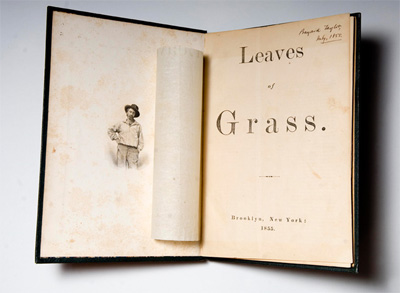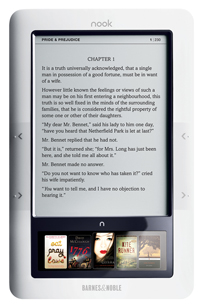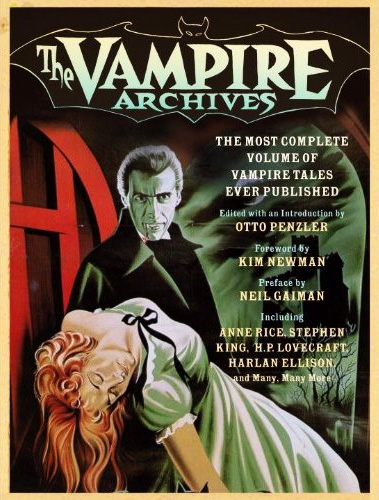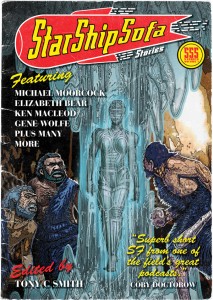Here’s a stop-motion film about the making of a book called The Complex of All These. It was made at the Women’s Studio Workshop in Rosendale, New York and consists of 3,000 photographs taken over a 2-month period.
Via Dangerous Minds
Here’s a stop-motion film about the making of a book called The Complex of All These. It was made at the Women’s Studio Workshop in Rosendale, New York and consists of 3,000 photographs taken over a 2-month period.
Via Dangerous Minds
 Remember the book? Of course you do, because you have plenty of them in shelves, half-read, dusty, bent, torn, coffee-stained, wine-colored, smudged, smelly, misprinted, broken and cherished. They catch your glance as you walk from one room to another, reminding you of a year or a moment when you were doing something else but had that book in your bag or backseat and meant to finish it or did in fact, and put it away and moved it several times in a box, cursing its weight and trying not to bend it. So there it sits now, quite possibly closed until the day you die. But you know it’s there and it’s a marker in your life. Remember this thing with books?
Remember the book? Of course you do, because you have plenty of them in shelves, half-read, dusty, bent, torn, coffee-stained, wine-colored, smudged, smelly, misprinted, broken and cherished. They catch your glance as you walk from one room to another, reminding you of a year or a moment when you were doing something else but had that book in your bag or backseat and meant to finish it or did in fact, and put it away and moved it several times in a box, cursing its weight and trying not to bend it. So there it sits now, quite possibly closed until the day you die. But you know it’s there and it’s a marker in your life. Remember this thing with books?
And LPs of vinyl? Mine used to function like books in my shelf. But I put them into a closet years ago because of CDs. Now I can’t stand searching a shelf of CDs, so I mainly use MP3 files. My albums no longer work as markers of life and time. The same thing is happening to books. All of mine are still on the shelves. But the world is changing and books are beginning to look a lot like information that wants to weigh less. It doesn’t matter how one feels about this, whether it makes us sad or not. It’s a creeping fact. Our books are turning into wonderful collector’s items. I can tell this is happening partly from all the excitement and business surrounding these e-reader devices. Books will continue to play an important role in literature but they will gradually be eclipsed by some other technology. The current e-readers are not necessarily it, but they are the harbingers of things to come. We are lightening our load because we can’t carry it around forever. We’ll have to travel light. Walt Whitman wouldn’t mind though, because he’d want to travel with us.
But this fellow, Raymond Danowski, has amassed the largest collection of 20th Century English poetry books in the world. He collected over 70,000 books, periodicals, and artifacts. The collection includes a first edition of Whitman’s Leaves of Grass, printed by the poet himself. It also has a first edition of T.S. Eliot’s Prufrock and Other Observations. There are so many books that when he donated the entire collection to Emory University in Atlanta, it took volunteers over a year just to unbox all the volumes. The university is now the major center for researching 20th Century English poetry books.
I’d like to see that collection. It must be fascinating. And anything is worth touching that Walt Whitman touched. Seeing books is the thing. They have a presence in a room, lining its walls and giving it enormous depth. But we are engaged in a process of making our books invisible. What will we put in their place? I’m not really too worried about that because when you turn all those words into digital form you present yourself with infinite possibility. When words float around in the air you are in the realm of magic beyond anything any book could have ever accomplished. Then again, sometimes just touching a book is enough to send your mind wandering down an unexpected path. Can touching a virtual keyboard have the same effect? Does it have to have the same effect? Maybe not. I’m sure banging a chisel into a clay tablet did things to a mind that ancient peoples were loath to part with.
Does the emergence of a world without books frighten or worry you? Do you see something wrong with a world in which literature is simply information that travels wirelessly? Do you think that ink is inherently superior to bits?
Eventually, we will read War and Peace by passing someone on the street and glancing into their eyes for a brief moment. That person will give us the book as nothing more than a polite ‘How do you do?’ At that point, we will remember books the way we remember the clay tablet.
John Grisham on NBC’s Today Show discusses his new book, writing novels versus short stories, and so-called predatory book pricing by large retailers like Walmart, Target and Amazon.com. I like Grisham in this interview. He’s a good interview and he seems sharp. He talks about how it’s much more difficult to fix a problem in the middle of writing a novel than to do so with a short story. So he advises writers to ‘not have a problem.’ The trick is to thoroughly outline your entire novel before you even start to write it so that you know every single thing that happens along the way. Pretty sound advice in most cases. Not all. Some of the greatest novels in the world were written by writers who had absolutely no idea where the novel was going from page one. It depends on what kind of book you’re writing. I think his advice is perfectly good for most books that are intended for sale in a grocery store. Certainly. But writers should never listen to famous writers. They’re full of crap. You write what makes you sweat and drink lots of coffee late into the night and bang your fingers on your keyboard until they hurt. Or not. Whatever. I hate outlines. Especially in word processors. Awful things. They destroy good minds and belong mostly in PowerPoint presentations for corporate managers. I’m not sure what the hell Grisham is talking about quite frankly. But then again, I’m not selling thrillers in the grocery store either.
But what mainly interests me in this interview is the discussion about ‘predatory pricing’ by the giant retailers. Apparently, if you listen to publishers, this spells doom for publishing and book selling as we know it. When asked what he thinks about his latest book being available for nine dollars at Target, Grisham says:
It’s shortsighted. Short term, they know what they are doing, I think. But if a book is worth $10 then suddenly the whole industry is going to change. You are going to lose publishers and book stores, and though I’ll probably be alright, aspiring authors are going to find it difficult to get published.
Yeah? So what. So we lose publishers and book stores. Who cares? The key in Grisham’s statement is where he says, ‘…and though I’ll probably be alright.’ He means writers will be alright. The big scary fact of the matter is that we simply don’t give a tiny damn whether or not a publisher prints a book or an author does. Publishers read, accept, edit, design, print and promote books. At least they used to. I don’t care what anyone tells you, but we do not need the editors. Writers can do that. You write the book and you edit it and you’re done with it. Readers are getting used to reading writers without editors. That’s why blogs are so popular. No editors. If you have an editor poking around in a blog, trust me, it’s not a blog. It’s a corporate front-end. A writer can also design and print a book. And sell it. Writers are publishers. No reader cares about Penguin. They care about the guy holding the gun. The guy holding the gun is put there by the writer. Writers will make guys, guns and gals forever. It’s what they do and it’s what readers want.
I don’t care if the guy with the gun says, ‘I’ve been looking for you for a long time, Mr. Peabody. Smile, because it’s the last thing you’ll ever do.’ Or if he says, ‘I’ve been looking for you. Smile. It’s your last.’
The writer can pick. The editor can go watch Kitchen Nightmares.
There is absolutely no excuse for a writer to work hard on a story, hammering it into existence from nothing, polishing it and making it exactly what he or she wants it to be… and then sit around to wait for some agent or publisher to get back via the U.S. mail so that said writer can be allowed to move on and send out yet another plea for acceptance. This is old technology. Twentieth century. It’s gone. In this century a writer writes and edits and publishes and sells. His book can sell in Target for nine dollars or three dollars. Magnificent. Literature available to people who don’t make lots of money. What a novel idea! If you’re griping about Target selling books for nine dollars, you must not be buying books. Go watch His Girl Friday and pretend that typewriters still make newspapers.
And you know something else? The guy with the gun doesn’t care. He’ll always be there. He’s not going anywhere. All the publishers and book stores could burn and all the editors could go to their early graves, and you know what? The guy with the gun is still gonna getcha. He’s going to find you wherever you go. He’s alive.
 I’m looking at this new e-reader from Barnes & Noble called the nook and I’m a little worried. It’s that split screen. The top is an e-Ink display for reading your books. But the bottom is a color LCD. Look at that picture. I don’t know about most readers, but I certainly don’t want that row of book covers staring me in the face as I read. Can one totally black that screen out while reading? What else shows up in there? Ads? Does anything move around to distract the reader?
I’m looking at this new e-reader from Barnes & Noble called the nook and I’m a little worried. It’s that split screen. The top is an e-Ink display for reading your books. But the bottom is a color LCD. Look at that picture. I don’t know about most readers, but I certainly don’t want that row of book covers staring me in the face as I read. Can one totally black that screen out while reading? What else shows up in there? Ads? Does anything move around to distract the reader?
I don’t know about this nook thing. I’ve got doubts.
 On Friday evening I went into Hollywood looking for monsters. I found some really bad ones. They’re inside The Vampire Archives, an enormous volume of vampire stories edited by Otto Penzler and published by Vintage Crime.
On Friday evening I went into Hollywood looking for monsters. I found some really bad ones. They’re inside The Vampire Archives, an enormous volume of vampire stories edited by Otto Penzler and published by Vintage Crime.
The book is organized into sections like Pre-Dracula, which holds gems like Good Lady Ducayne by English writer M.E. Braddon, Carmilla by Sheridan Le Fanu, and Ligeia, by Edgar Allen Poe.
Another section is That’s Poetic, with works by John Keats, Lord Byron and Johann Wolfgang Von Goethe.
The final section is Modern Masters, with stories by Ray Bradbury, Peter Tremayne and Brian Lumley.
The book finishes with what is advertised as the most comprehensive bibliography of vampire fiction ever assembled. And it certainly goes on for many pages.
The book is a big fat heavy pulpy treasure and I dug right into it as soon as I got home. This thing will put you in right good shape for the approaching Halloween day of terror and magic.
And let me stick my thumb into the eyes of literary bloggers everywhere who can’t write about a book and link to its purchase page without sadly trying to make 14 cents off the deal, I am going to pull an unexpected sleight of hand trick and link to this fantastic book without making a single pathetic penny.
Next time I see some jackass literary blogger link to a book as an ‘Amazon Associate’ I’m a gonna send that hungry fool 14 cents so they can go buy a Big Mac.
 The wonderful science fiction podcasting site, Starship Sofa, in celebration of its 100th episode, has published its first collection of stories as a book. Not just an ordinary book. It’s a book filled with fantastic illustrations and gorgeous layout that hearkens back to the pulp publications of the 1930s through 1950s. It even has vintage advertisements!
The wonderful science fiction podcasting site, Starship Sofa, in celebration of its 100th episode, has published its first collection of stories as a book. Not just an ordinary book. It’s a book filled with fantastic illustrations and gorgeous layout that hearkens back to the pulp publications of the 1930s through 1950s. It even has vintage advertisements!
The best part is that you can either buy the book or read it as a free ebook in an excellent ebook viewer.
Some of the authors featured are Michael Moorcock, Alastair Reynolds, Ken Scholes, Ruth Nestvold, Elizabeth Bear, and more.